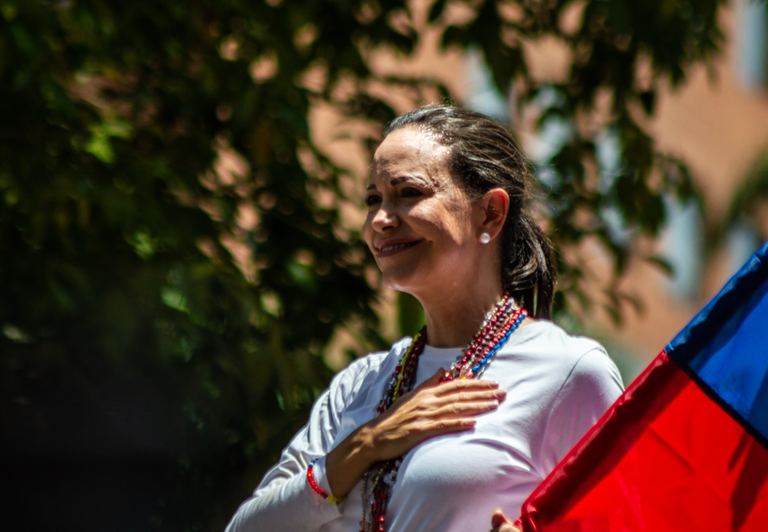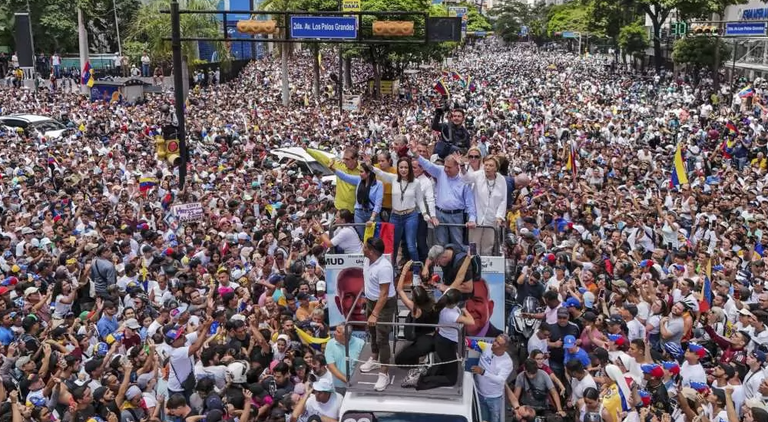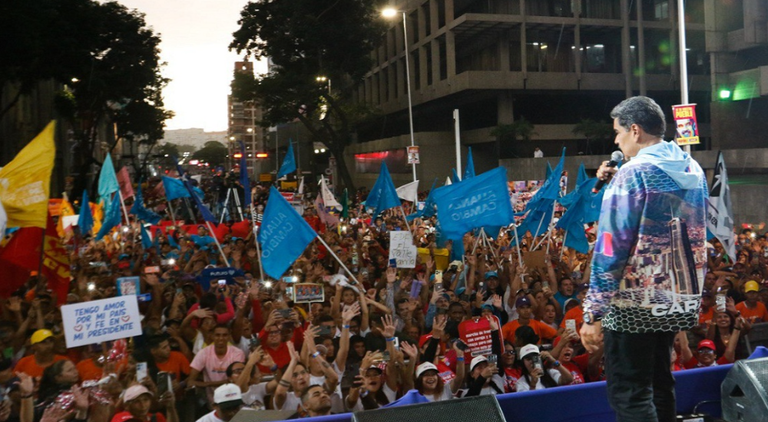
Here's the first entry of this series.
The Venezuelan situation has always been confusing, even for us sometimes, so I'll explain the situation of the latest elections, which wouldn't have happened but for strenuous foreign and domestic pressures placed upon the regime. They were forced to consent to opposition primaries last year and María Corina Machado (pictured above,) a former lawmaker with a radical past in her confrontation against Hugo Chávez and then Nicolás Maduro, emerged as the candidate by a wide margin. However, the government banned her from running for President, a strategy that they've used many times before with opposition leaders, so she allied herself with Edmundo González, an old-timer who served as Venezuela's Ambassador to Argentina in Chávez's time. His clean record and the fact that he served under the leader of the revolution made him unassailable and he became the candidate in lieu of Machado, who remained the de facto leader of the opposition movement.
They quickly amassed large support from all sectors and embarked on an extensive campaign that saw them cover the entire breadth and scope of the country's territory on foot, by truck, bus, motorcycle and even boat. Wherever they went, they were received by enormous crowds while their counterpart, Maduro, had to restrict himself to a few localities, force public workers to join the crowds and call in buses from all over the country to arrange close-cropped photoshoots with what remains of his supporters.
In previous years, these campaigns were messy affairs plagued with factional confrontation, but this time, the climate was mostly peaceful except for the fact that the regime sent security forces, armed civilians and even tax collectors to intimidate and arrest anyone who had lent their home for Machado and González to spend the night, and to close and fine businesses that had provided them with food and accommodation, which didn't cause the desired effect, as people kept risking retaliation.
On July 25th, when the two campaigns ended, I took a trip to downtown Caracas, to the very offices of the National Electoral Council, surrounded by police officers and military agents, to put up two runestones that I'd carved for that day and place. In the subway and on the street, I saw the two groups of supporters sharing space without the usual insults of old, sometimes joking around. On the day of the election itself, the feeling was the same. This was one of the many signs that this process was different from any others.
Next I'll talk about other important differences.

